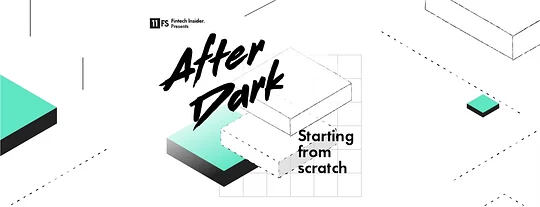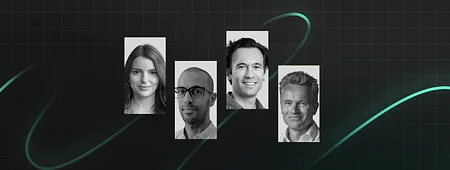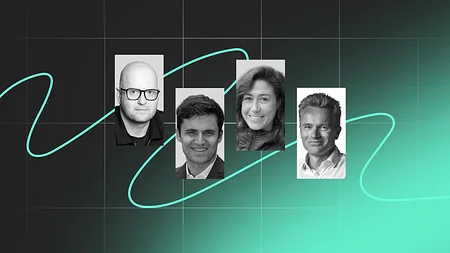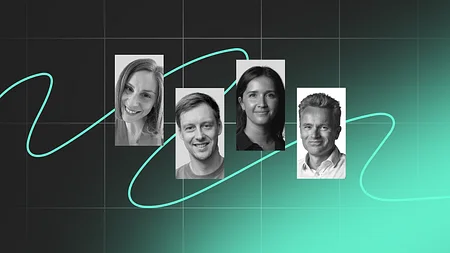You’re building the first banking ecosystem on Mars. Where do you begin?

For this edition of After Dark, the live recording of our Fintech Insider podcast, we went for something a little bit different. Presenting After Dark: Starting from scratch, the short story...
Check out the video here.
The year is 2040. We’ve exhausted nearly all of the earth’s natural resources. Many lives were lost as Jeff Bezos triumphed at the Battle of the Billionaires. The survivors have settled on Mars and you’ve been tasked with building a banking ecosystem from the ground up.
There are no rules, regulations or limits. As 11:FS co-founder and CEO David M. Brear puts it: ‘Whenever we get to build something fun, there’s always these limitations. What we’re trying to do tonight is figure out what would really happen if you started from scratch’.
Our panel takes to the theme like ducks to water. Joining David and 11:FS co-founder & Deputy CEO Jason Bates is Head of Google for Startups UK Marta Krupinska, EdenBase.com co-founder Eric Van der Kleij and RegTech Associates co-founder Dr. Sian Lewin. Over the course of our interstellar journey to the Red Planet, the discussion will be divided into two parts. Take your protein pills and put your helmet on...
Part one - What do we leave behind?
We’re barely out of orbit and already Jason is getting sentimental about banking: ‘We started with something very simple. A few guys on a bench.’ Flash forward a few hundred years and systems, technology and branches have been built on top of this basic idea. We’re left with a huge cost when it comes to building something new. So why not leave all that behind? Dream big, Jason. Dream big.
Sian is next. She’s quick to point out that 97% of money in the UK is created by banks, so do we need a central digital bank currency? Not only that, but if we’re adopting a fractional reserve banking system then some form of regulation is a must. The cost and complexity of that regulation, however, is definitely getting left behind. Good riddance.
Marta follows. Calling out injustices linked to lending and international transfers, she rails against the ‘paradoxical’ relationship between money and the poor: ‘The more you need it, the harder it is to get...hopefully we would not have a completely messed up, unequal environment on Mars’.
Lastly, Eric. Although a confessed ‘fan’ of central banks, he wonders whether leaving them behind might be in the best interests of our new planet. Mistakes have been made in recent years and wiping the slate clean is no bad thing.
Mistakes have been made in recent years and wiping the slate clean is no bad thing.
Kudos to Sian for delivering the big mic drop moment: ‘Maybe banking needs to be a utility instead of a profit-making industry’. Boom.
Part two - What do we do?
We’ve reached the halfway point in our interplanetary excursion and the conversation has shifted. This is an opportunity to not make the same mistakes we made on Earth, says David. Very much so.
Eric is up first. He wants peer-to-peer mesh networks in lieu of traditional banking infrastructure, with incentives for passing on transactions. But can we find a way to keep the privacy that cash offers? Can’t a man eat a Danish pastry in peace without his health insurer catching wind of it?
Jason is sceptical. What problem does mesh networking solve? He wonders. A self-sufficient network will be much more difficult to build than some kind of centralised infrastructure.
David wades in: ‘What happens if you completely centralise banking?’ A single system with real-time regulation. Sian is a fan. Imagine if the regulation was instantaneous. Just imagine.
However, there’s a problem. You can’t outsource integrity, good behaviour, culture and conduct to technology, says Sian. Some form of human intervention is necessary. And what happens when the Martian currency runs out?
You can’t outsource integrity, good behaviour, culture and conduct to technology
Further problems arise. ‘You land on Mars, you’re provisioned with an identity, an account, a store of value. But how are we going to do payments?’ David asks. Jason is the only passenger with a card on him and we want to avoid using plastic as much as possible. Maybe facial recognition technology is the way to go. Eric thinks so. It’s certainly useful when it comes to fraud prevention. But how is our currency fungible with other planets and how do we determine its worth?
Marta thinks it might be something to do with communities. On Earth, she says, we got it wrong. Innovation led to depersonalisation and we moved further away from each other despite our relative closeness. So how do we build trust on Mars?
Taking a different tack, Eric says he trusts machines more than some humans. Sian counters that humans are more unethical when interacting with machines than people. But surely that doesn’t mean the machines are distrustful - they’re programmed to order.
The group agrees that some kind of governing body is needed. Not unlike a central bank, Jason quips. And Sian has some questions about who is provisioning the currency. An autocratic state? David? It’s impossible to build anything financial without thinking about the wider political and economic goals of society.
It’s impossible to build anything financial without thinking about the wider political and economic goals of society.
Mars is looming large on the horizon now. In the nick of time, the group realises that they’re all on the same page. For all that’s new and exciting about digital banking, we need people. We need a community-driven culture. We need children brought up with the right values. We need empathy.
There’s a lot to do. Let’s get to work.



